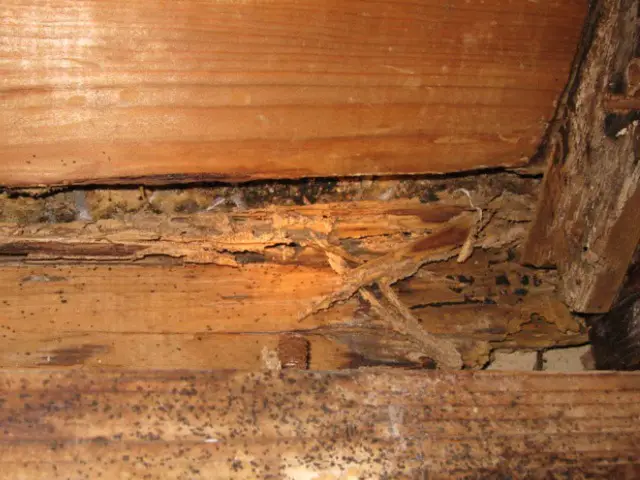It’s a fact that rats can make you sick, very sick. Rats carry dozens of diseases, some of which can be life-threatening. Rats pose serious health risks to humans as a result of exposure to feces or urine. Diseases can also be caused by scratches and rat bites. Even if you never touch a rat or get bitten by one, you can still get sick by contaminated food caused by rats.
Can rats spread disease to humans?
People can become infected by bites or scratches or become ill after eating food or drinks contaminated by rat feces or in close contact with rodents. Many people who come in contact with rats can become seriously and even life-threateningly ill.
Related posts:
Do all rats carry leptospirosis?
Leptospirosis is commonly carried by rats. It’s spread by rat urine. You can also get leptospirosis if you touch an infected rat’s blood or flesh. It’s unlikely to contract leptospirosis from bites, other people, or pets.
The infection in rats doesn’t cause illness. In other words, rats are chronic asymptomatic carriers. As a result, rats remain unaffected by high levels of infection. Infection of humans generally occurs where open wounds come in contact with stagnant water contaminated with rat urine.
What diseases are caused by rat droppings?
You can get seriously ill from being around rat droppings. Hantavirus pulmonary syndrome or HPS is transmitted by infected rats through droppings, urine, and saliva. HPS is potentially deadly. Humans contract the virus when they breathe in aerosolized virus.
What are the chances of getting sick from rat feces?
You can get hantavirus from rat droppings, but it’s rare. The chance of contracting hantavirus is 1 in 13 million. Technically, you are more likely to get struck by lightning (1 in 500,000) than contracting hantavirus from a rat. Keep in mind that rats can spread about 35 different diseases according to the Centers for Disease Control and Prevention.
What diseases do rats carry?
In addition to the transmission of bovine plague, typhus and hantavirus, rat infestations can also be harmful to human health. For example, rat feces and hair can cause people to sneeze or have other allergic reactions. Humans can also get sick from contaminated food caused by rats walking over worktops on which food is prepared.
What are the common diseases spread by rats?
Rat bite fever – Rat bite fever is spread when an infected rat bites a person. It can also spread when someone touches an infected rodent. It can spread even if no scratch or bite occurs.
Hantavirus – Rat infestation in and around the home is the primary route for humans to get infected with hantavirus. Research suggests that humans can become sick if they eat food contaminated by saliva, droppings, or urine from an infected rat. It’s mostly found in the western United States. Although it’s relatively rare, it’s a potentially life-threatening disease. Hantavirus is most commonly spread by the rice rat, cotton rat, and white-footed mouse. Unfortunately, currently, there is no cure, treatment, or vaccine.
Plague – Yes, that’s right, rats spread the plague. The same plague that wiped out millions of people in Europe during the Middle Ages. It is caused by the bacterium, Yersinia pestis. Plague infections continue to happen in semi-rural and rural areas in the western U.S.A. Plague is only one infected flea bite away. When the rat dies, hungry fleas will seek other sources of blood such as humans. A flea bite exposure could result in bubonic plague. Although the plague is a very serious illness, it’s treatable with antibiotics if caught early enough. Without early treatment, it can cause death.
Salmonella – Some rats carry salmonella bacteria in their digestive system, making any contact with rat droppings, a potential risk to contract salmonella.
Tularemia – Tularemia is most frequently transferred to people by an infected deer fly bite or tick. Like hantavirus, tularemia is a potentially life-threatening disease. There have been reported cases of tularemia in all U.S. states except for Hawaii. It can be a life-threatening disease without antibiotics.
Can you get sick from rats in your house?
People can become ill if they touch or inhale rat feces or urine. Humans can also become infected if they do not wash their hands after contact with a rat or if food, drinks or utensils are contaminated with rat feces.
Feces and diseases from rodents can be transmitted to humans when rat droppings or urine leave the house. Feces from rodents can spread diseases and viruses, contaminate food and cause allergic reactions in humans. Infected rodents can also transmit diseases to humans through ticks, mites and fleas.
In addition to rodents, several animals can infect rats with lungworms, including A-snails and nudibranchs. Diseases can also be transmitted by ticks, fleas and mites that live on infected rats.
Stay away from rodents and rodent dens, such as pack rat nests. Keep clean pet food dishes and store pet food in containers where rats can not enter or chew. Do not use cabins or other enclosed accommodations for rodents or rodent feces (e.g., Feces or urine) unless they are thoroughly cleaned and disinfected.
It is important to note that rats and mice leave tiny traces of urine on their journeys, and these traces can be seen under fluorescent lights. If there is an infestation with rodents, householders are more likely to deal with rodent feces and urine. Mouse droppings can indicate a rodent problem but can also make you sick. Feces from rodents can cause allergies and transmit food-borne diseases such as salmonella.
Lymphocytic choriomeningitis (LCMV), a viral infectious disease, can be transmitted through rat saliva and urine. In some people, the disease can have long-term effects; in others, only temporary symptoms. As mentioned above, ticks, flies and fleas can infect humans by abandoning their rat hosts and transmitting diseases to human hosts. One of the most dangerous rat diseases is bubonic plague, also known as Black Plague or its variants. Therefore, the best way to avoid diseases caused by rat infestation is to prevent rats from invading your home in the first place.
One can become infected by a direct bite, touching a dead rodent with a rat bite, or eating or drinking food contaminated by rats. Many types of rodents transmit disease, but the most common are rats and mice, and living near humans increases the risk. More than 35 diseases can spread to humans through contact with live or dead rodents, feces, urine, saliva, or rodent bites. For example, rat-bite fever is transmitted through bites and scratches from infected rodents or contact with dead rodents or by eating or drinking food or water contaminated with rats’ droppings.
Rats are rodents known to be carriers of several types of diseases that can lead to severe illness and, in some cases, to death. In addition, some rat-borne diseases can cause serious and sometimes fatal diseases in humans.
The Centers for Disease Control and Prevention (CDC) reports that rats and mice can transmit pathogens that cause diseases that can affect humans and, in some cases, pets. By understanding what they do and what is at stake in a rodent invasion, simple and effective measures can be taken to prevent exposure to rodent-borne diseases. In order to understand the dangers of domestic rodents, the basics of the spread of the disease must first be understood.
Rats and mice are particularly dangerous from a public health point of view because they can transmit diseases through their waste. Rats and mice walk on their urine, feces and human food, transmitting bacteria from their feces that can contaminate human food and make them sick when they eat it. Rats also carry viral diseases that are released when dried feces, urine and saliva are broken down.
Hantavirus can be transmitted to humans by inhaling air particles caused by the feces, urine or carcasses of rodents. There are various ways people can be infected with hantaviruses, life-threatening diseases that can be transmitted to humans by infected urine, feces or saliva from rodents.
Besides other germs such as salmonella and giardia, hantavirus and rat bites and fevers are spread through infected rats’ urine, feces, and saliva. Hantavirus infections can occur when particles containing viruses are inhaled from the urine, feces or saliva of rodents, swirled up in the air. You can also be exposed to hantaviruses by cleaning a dead rodent’s body or rodent droppings or urine.
Rats are dangerous pests, so don’t allow them in your property or house. A few rodents can cause a stir when they chew on wires, nibble on your food, or eat your furniture. But rats not only break into your food and gnaw on your belongings and leave feces – but they are also very effective at transmitting viruses to humans through their feces, urine and parasites.
It is well known that rodents transmit diseases to humans 35 times, and the Centers for Disease Control and Prevention (CDC) has blamed rats for many of them. Many of these diseases are transmitted by rodents such as rats and mice. Of course, not all rats carry diseases, but some do pose many health risks.
Can dogs get diseases from rats?
Rats are not only a nuisance regarding how they trample through attics, scratch the floors, and cause a commotion, but they also are renowned for spreading over 35 sickly diseases. Whether it is an airborne disease or a bite, we’ve got you covered for what to do if your animals get infected, how to prevent illness in the first place, and some common diseases to look out for.
Types of Diseases
Diseases can be transferred from a rat’s saliva, feces, or urine, rate bites, scratches, and contact with dead rats. In addition, particles from rat feces can disperse in the air, and a pet (or human) might get sick from simply inhaling these particles. This is not something to be taken lightly since rats poop an average of 70 times a day. Here are a few common diseases caused by rats indirectly (aka no contact with the rat, but perhaps contact with something else that has touched the rat):
- The bubonic plague, aka black death or the notorious “Black Plague,” is spread when fleas jump off rats onto the body and bite the skin.
- Hantavirus occurs when someone comes in contact with rat urine, feces, or a carcass, which can be transmitted through dust floating in the air. Symptoms include breathing difficulties and immobility.
- Colorado tick fever transmits to pets if when a tick that has previously sucked blood from a wood rat bites them.
- When a sand fly feeds on a rat and then bites a pet, this skin parasite is called cutaneous leishmaniasis.
Of course, there are a bunch more diseases indirectly caused by rats, and here are some that happen directly caused by the pests:
- When water is infected by rat urine, pets (mostly dogs) can obtain leptospirosis by swimming in water or rolling in mucky soils.
- Rat-bite fever transmits when a pet is bitten or scratched or if they come in contact with a dead rat.
- Rat feces that contacts water or food that is consumed by a pet causes salmonellosis.
How to protect your pets from pests?
In order to prevent a horrible disease caused by rats from ever infecting your furry friend, there are a few precautions to take, such as staying on top of vaccinations and rat-proofing your home.
To rat-proof, your home, seal small spaces, set up traps to catch existing rodents living amongst you and your pets, and maintain cleanliness in order to stay aware of any rat droppings and ensure infected dust isn’t inhaled into your lungs.
What to do if your pet gets infected?
Pay close attention to your pet to notice any differences in behavior, fur problems, a fever, yellow eyes, etc., so they receive the quickest treatment possible. Also, don’t allow them to spend time rolling around in smelly, dirty swamps that seem contaminated.
Depending on the disease, your pet may merely be uncomfortable for a few days, which they may be prescribed medication for, or a serious illness with terminal consequences might infect them unless caught quickly. Take note of any symptoms, and contact your veterinarian with every detail possible.




